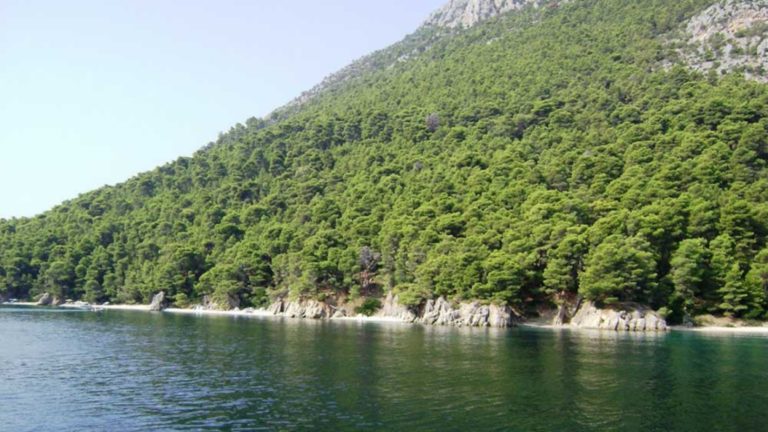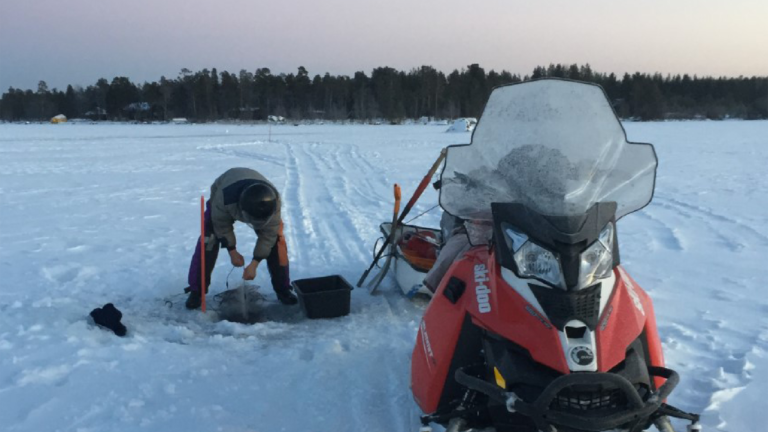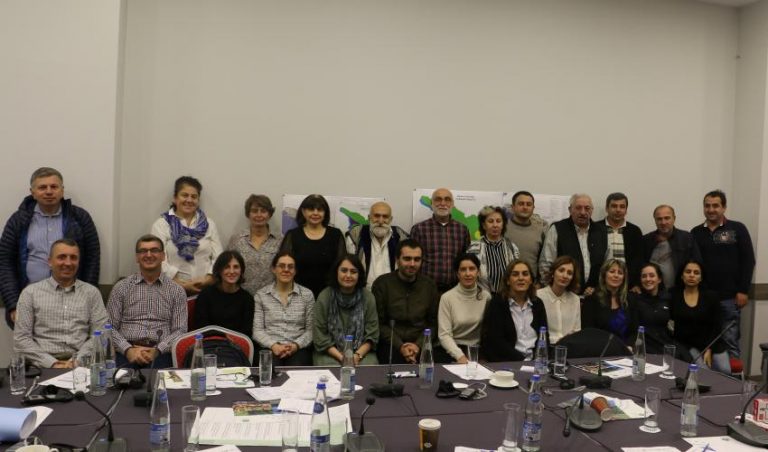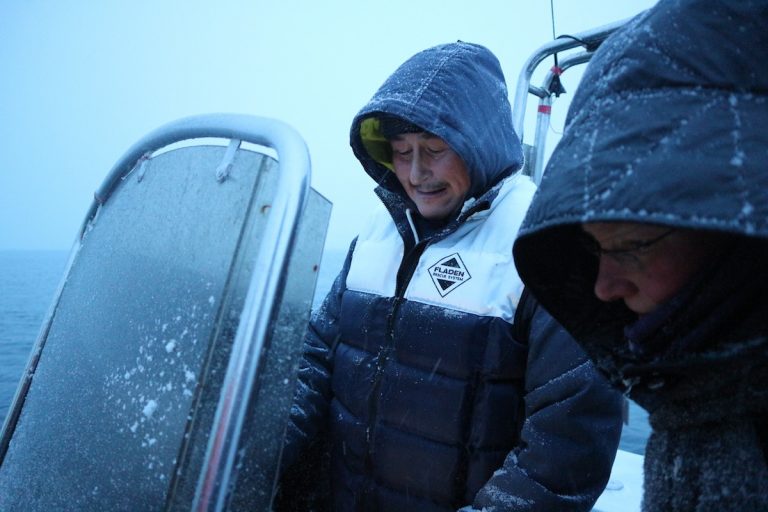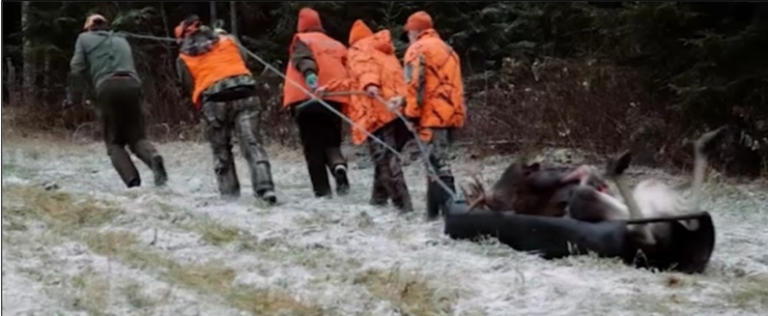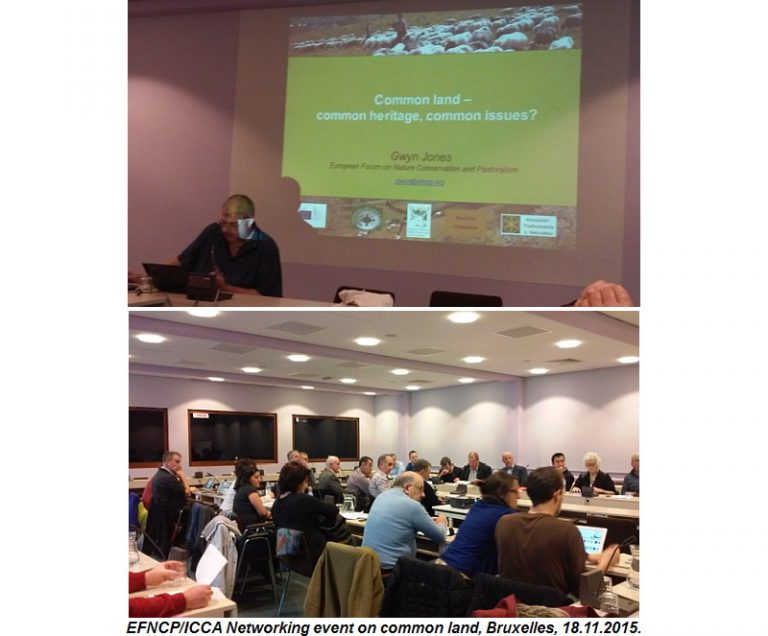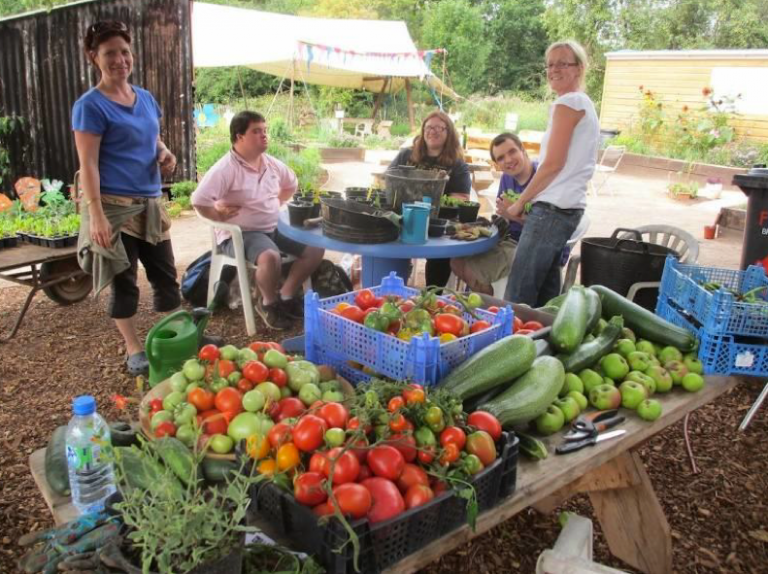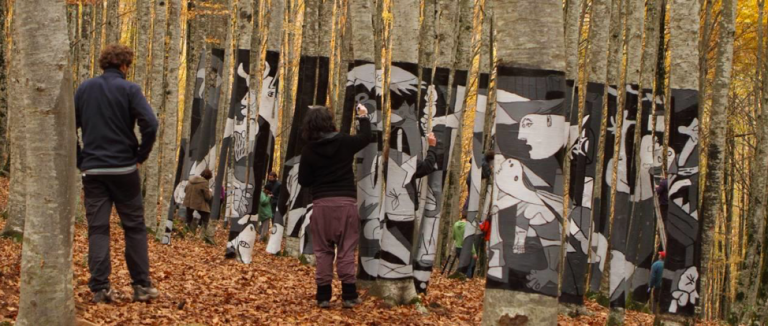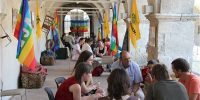An appeal for solidarity with traditional communities of Kalamos-Kastos islands in the fight against colonial conservation
In our struggle against land and ocean grabs and fortress conservation, we are being intimidated and threatened; we ask for solidarity and support from the ICCA Consortium members and community-based organizations. Read more ▸
Indigenous peoples’ food systems: Inari Sámi and Snowchange share key messages
Arctic Inari Sámi community, and Snowchange (ICCA Consortium Member) have authored a major case study in the in the latest book on Indigenous food systems co-published by Food and Agriculture Organization of the United Nations. Read more ▸
Protected area governance in Georgia
A national level governance assessment was recently held in Tbilisi, Georgia, with IUCN leading a three-day workshop convening key stakeholders in Georgia. Representatives of… Read more “Protected area governance in Georgia” ▸
Deepening voices from Greenland lead to visual stories
Throughout 2017 Snowchange, Greenlandic partners, Skolt Sámi and the Danish NORDECO partnered on a Nordic Council -sponsored project “eXchanging Knowledge”, to find new, direct ways of expressing Indigenous and local-traditional knowledge, as well as support direct exchanges between hunters, fishermen, women, reindeer herders, managers and researchers. Read more ▸
Food Sovereignty matters in both Europe and Central Asia!
By: Iris Beneš, Brod Ecological Society (BED), ICCA Consortium member and Rodion Sulyandziga, Centre for Support of Indigenous Peoples of the North More than 500… Read more “Food Sovereignty matters in both Europe and Central Asia!” ▸
Current ICCA-related issues in Northern Europe
By: Aili Pyhälä, Steering Committee Member with special responsibility for Northern Europe and Russia In June 2017 I had the privilege of being part of… Read more “Current ICCA-related issues in Northern Europe” ▸
Two first ICCAs successfully pass the peer-review process developed in Spain for international listing in ICCA Registry and WDPA
By: Sergio Couto, ICCA Consortium regional coordinator for Europe During the last days of April, 30 local community representatives from all around Spain gathered in… Read more “Two first ICCAs successfully pass the peer-review process developed in Spain for international listing in ICCA Registry and WDPA” ▸
Primera Asamblea de Iniciativa Comunales
Por: Por Pablo Domínguez, profesor e investigador de Antropología ambiental de la Universidad Autónoma de Barcelona, y miembro de iComunales y el Consorcio ICCA La… Read more “Primera Asamblea de Iniciativa Comunales” ▸
Engaging with “the commons” in Bern…
By Iris Benes, ICCA Consortium Honorary Member and Brod Ecological Society (BED) The International Association of Study of Commons (IASC) is an organization devoted… Read more “Engaging with “the commons” in Bern…” ▸
Snowchange struggles to secure the collective rights to nature of local communities and indigenous peoples in Northern Europe
Snowchange is a non-profit independent organisation based in Finland, with member and partner communities across the Arctic. The cooperative joined the ICCA Consortium at… Read more “Snowchange struggles to secure the collective rights to nature of local communities and indigenous peoples in Northern Europe” ▸
Exploring our Common Ground – a networking event on the grazing commons in Europe
On the 18th-19th of November 2015, the first networking meeting on the grazing commons was held in Brussels, organised by the European Forum on… Read more “Exploring our Common Ground – a networking event on the grazing commons in Europe” ▸
Protecting nature in Europe… the perspective of the ICCA Consortium on the “Little Sydney” conference
By: Sergio Couto González, ICCA Consortium Coordinator for the Mediterranean region and member of the Steering Committee of Iniciativa Comunales. Conservation experts from all… Read more “Protecting nature in Europe… the perspective of the ICCA Consortium on the “Little Sydney” conference” ▸
Iniciativa Comunales: together for ICCAs and the commons in Spain
By: Sergio Couto González, ICCA Consortium Coordinator for South and West Europe and member of the Steering Committee of Iniciativa Comunales. Little more than… Read more “Iniciativa Comunales: together for ICCAs and the commons in Spain” ▸
Migratory birds connecting communities and their ICCAs in separate continents?
By: Wim Hiemstra Ria Oevering holds a young godwit chick, about 3 weeks old. The bird hatched in May 2014 on their dairy family farm, where the Oevering’s… Read more “Migratory birds connecting communities and their ICCAs in separate continents?” ▸
Preserving communities and environment through Transhumance
By: Concha Salguero & Transhumancia y Naturaleza/Meditarranean Consortium The Mediterranean Consortium for Nature & Culture has undertaken a project to assess and support transhumance and… Read more “Preserving communities and environment through Transhumance” ▸
Declaración de Valdeavellano de Tera
Por: Sergio Couto, Coordinator for South and West Europe, ICCA Consortium El viernes 26 de septiembre Iniciativa Comunales ha presentado en el Jardín Botánico… Read more “Declaración de Valdeavellano de Tera” ▸
The local community food growing revolution: a perspective from Bristol, the UK
By: Vanessa Reid (Honorary member) I believe there is a truly grassroots, local community revolution happening on my home shores, and it’s all about… Read more “The local community food growing revolution: a perspective from Bristol, the UK” ▸
Current situation on ICCA recognition in South & Western Europe
By: Sergio Couto, ICCA Consortium Regional Coordinator for South and West Europe Currently the ICCA Consortium level of implementation of the advocacy and recognition… Read more “Current situation on ICCA recognition in South & Western Europe” ▸
Proyecto 2001: La Trashumancia del siglo XXI recuperado el patrimonio común de los pastores españoles
Por: Jesús Garzón, Asociación Trashumancia y Naturaleza (miembro Honorario) España es el único país del mundo que dispone de una extensa red de caminos… Read more “Proyecto 2001: La Trashumancia del siglo XXI recuperado el patrimonio común de los pastores españoles” ▸
David against Goliath: multinational mining company threats outstanding National Protected Area and transboundary common lands in the Pyrenees
By: Sergio Couto González, Regional Coordinator for South and West Europe, with an introduction by Ashish Kothari, member of the Steering Committee / Kalpavriksh… Read more “David against Goliath: multinational mining company threats outstanding National Protected Area and transboundary common lands in the Pyrenees” ▸

